Explore the schema
Exploring the schema in SQLite
Open the database in either DB Browser for SQLite or SQLite viewer plugin for Visual Studio Code
- DBBrowser for SQLite
- VSCode - SQLite Browser
Launch DB Browser for SQLite
Open the database.db file in the project directory.
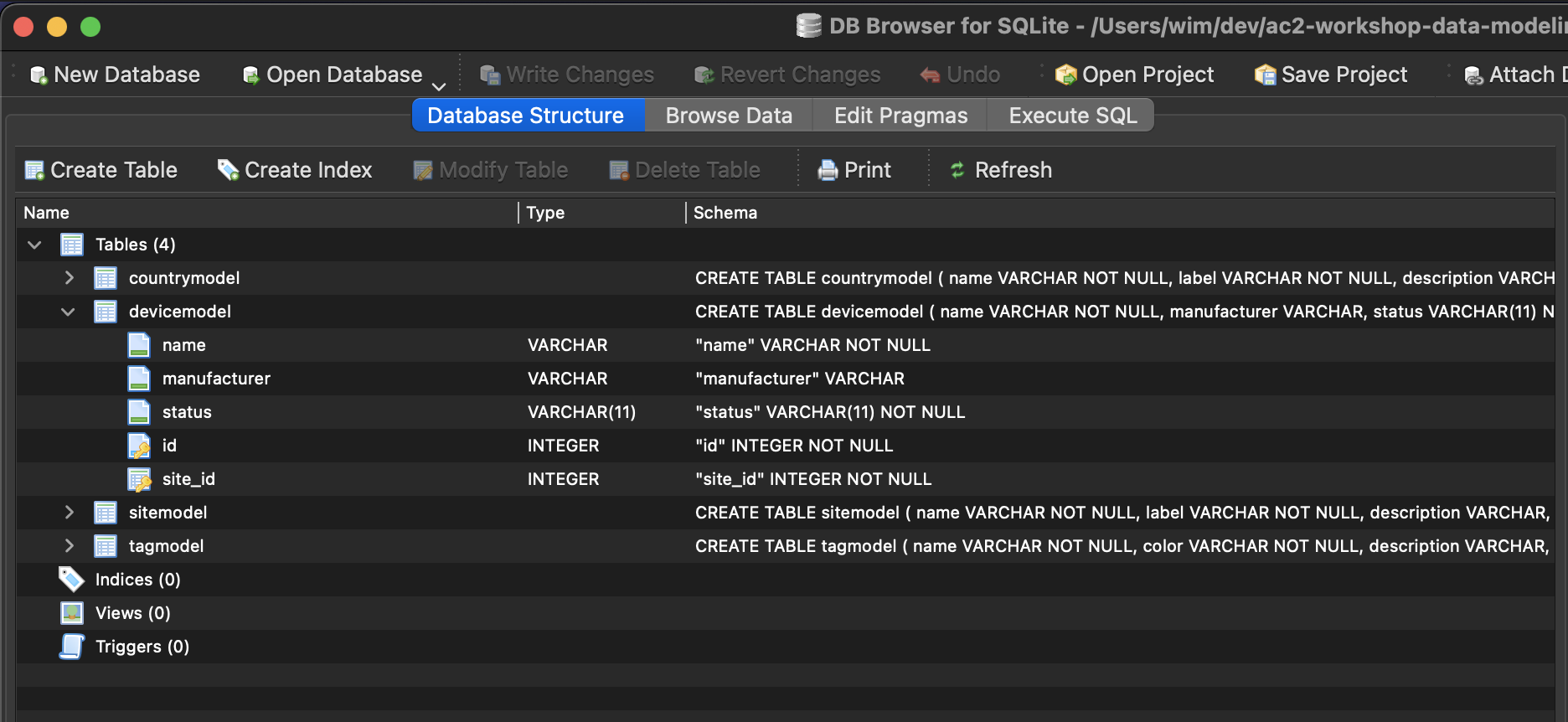
Double click the database.db file within VSCode.
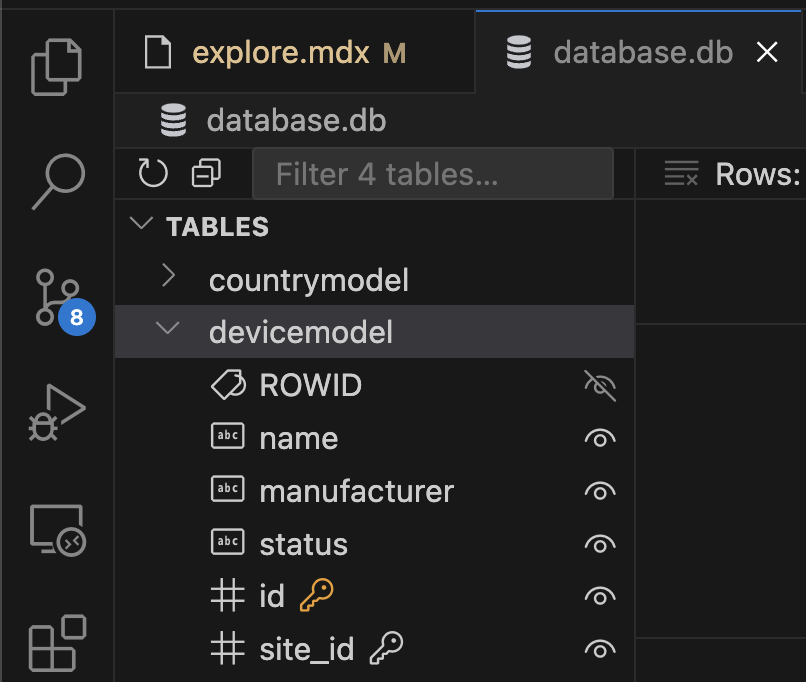
There is a table for each model defined in the application.
Expand the devicemodel table. We can see that there is a column for each attribute defined in the model.
Each column has a specific type associated with it. The relationships are also modeled as a column and links to a key in another table as an INTEGER. For example, the site_id column references rows in the sitemodel table.
Exploring the schema in the graph database (Neo4j)
Navigate to the Neo4j Browser.
Connect to the database using the username "neo4j" and password "admin".
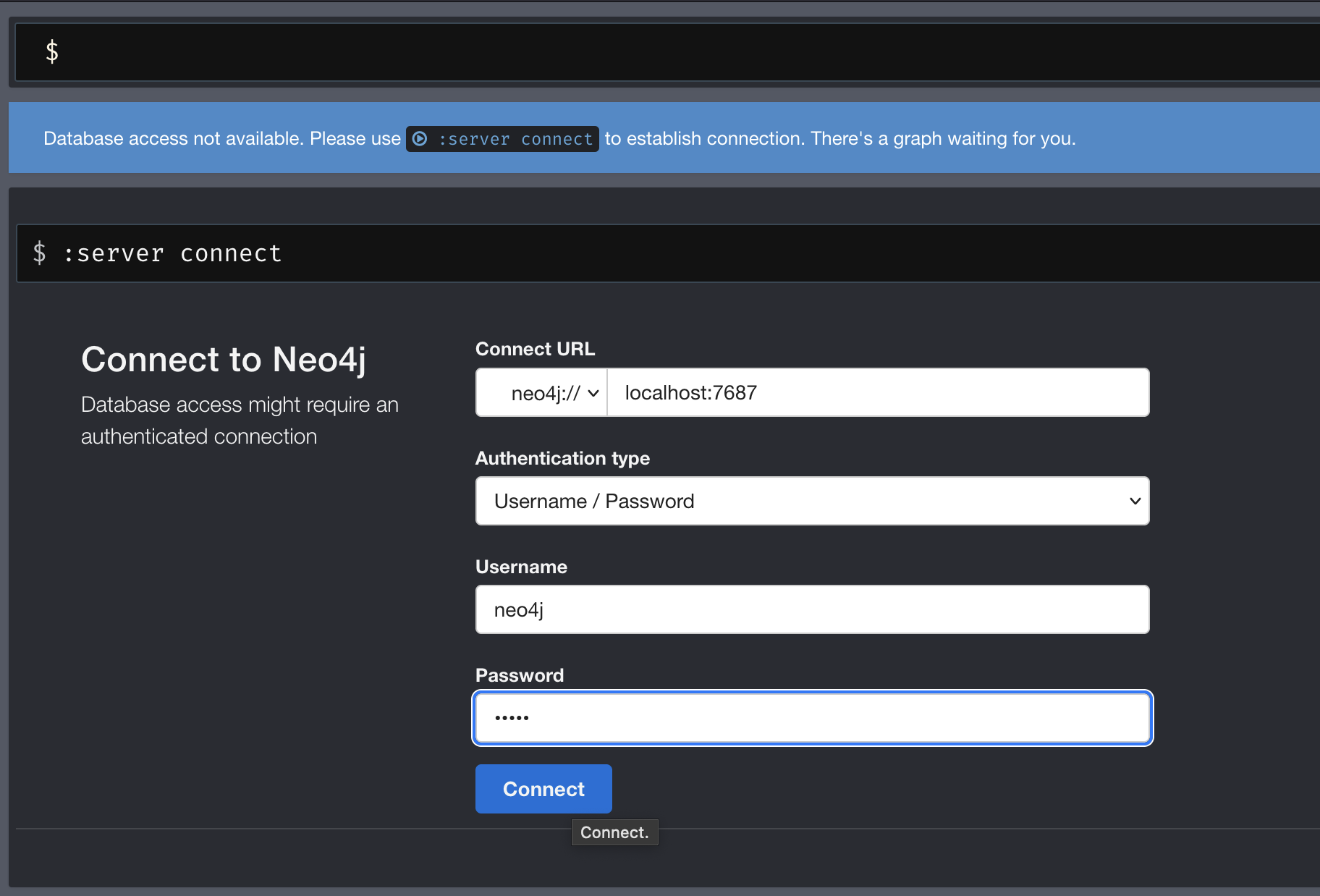
When you are connected, click on the database icon in the top left.
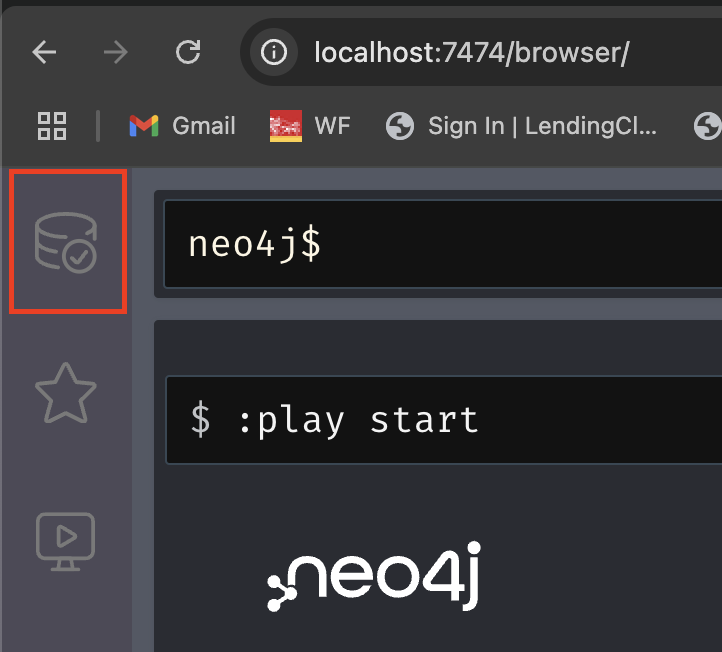
In a graph database, we do not have tables that represent each model, but instead we will have nodes that use a node label to define their "model".
There are node labels that correlate to each model, but there is no underlying schema stored in the database.
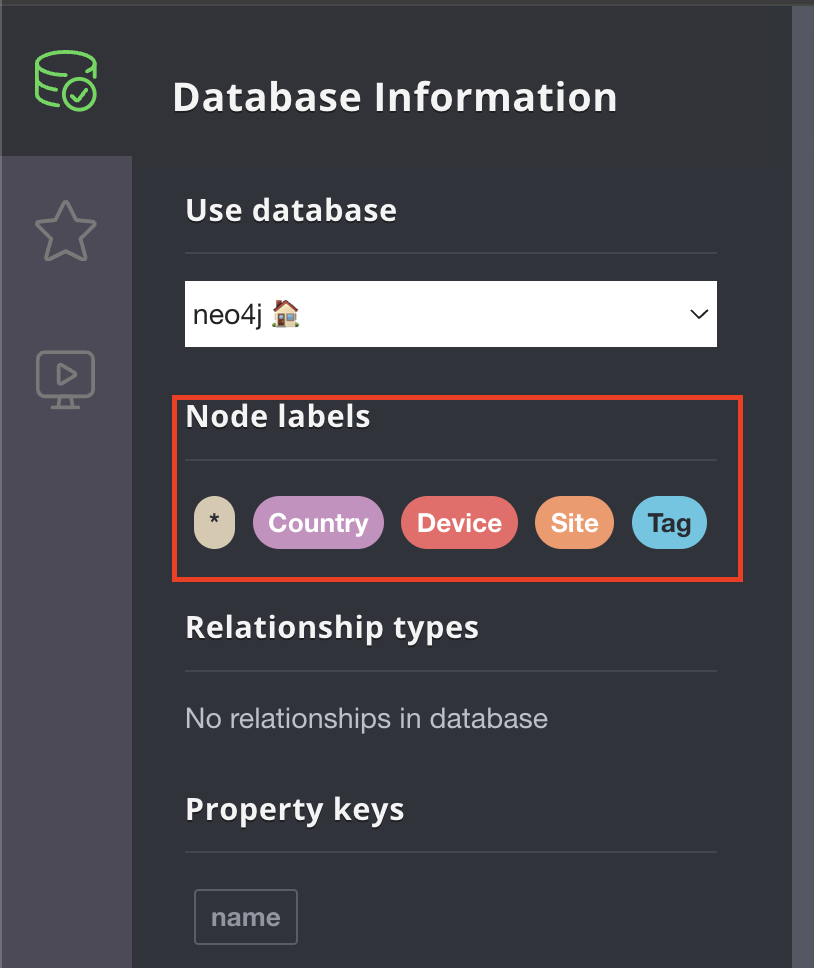
The attributes of models will be stored as properties of the node in the database, but there is no enforcement of which properties a node should have or what type they should be.
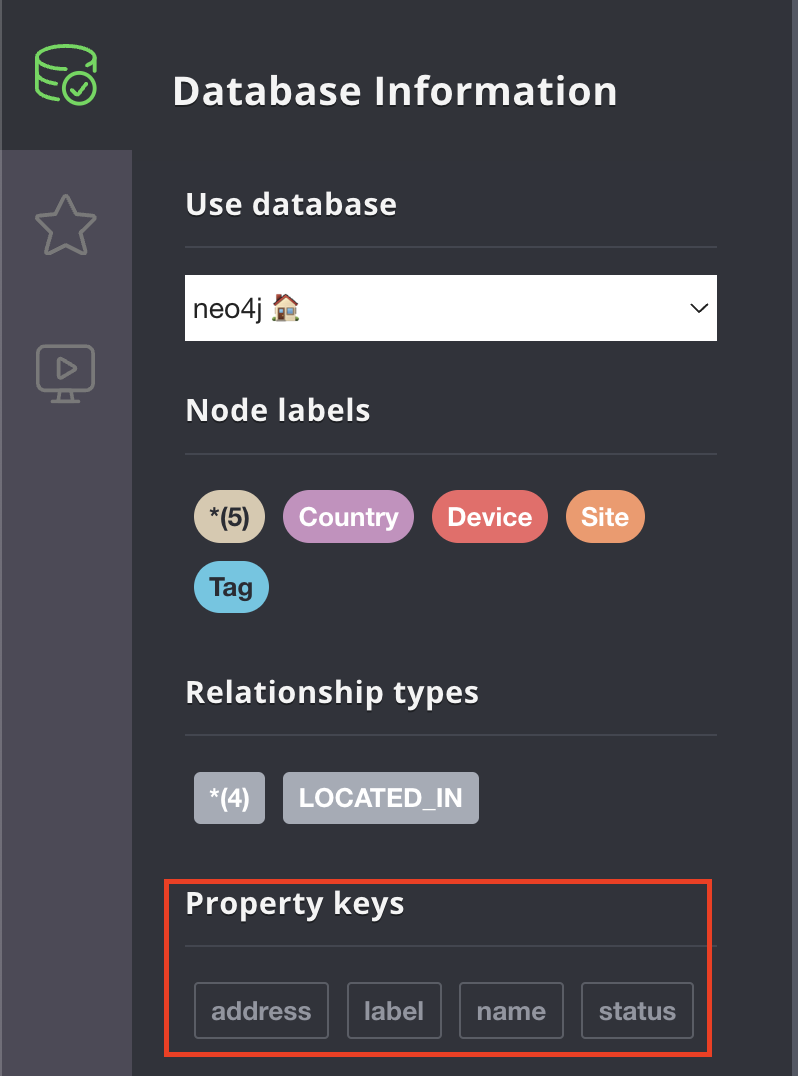
The enforcement of properties and their types must be done at the application layer.
Relationships between nodes are created as edges and they will also have their labels associated with them.